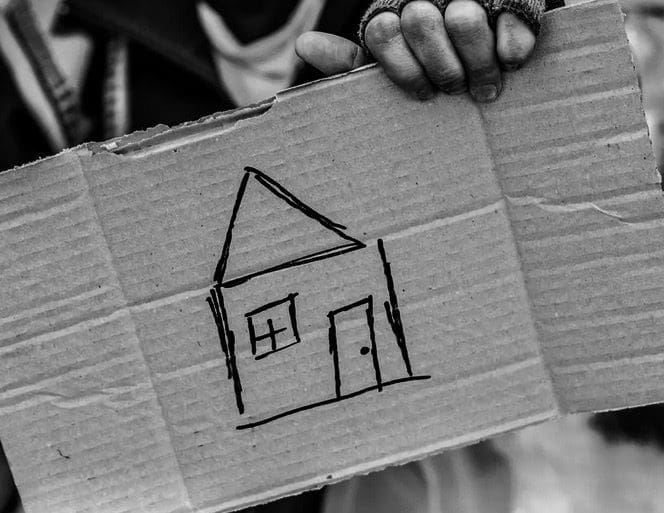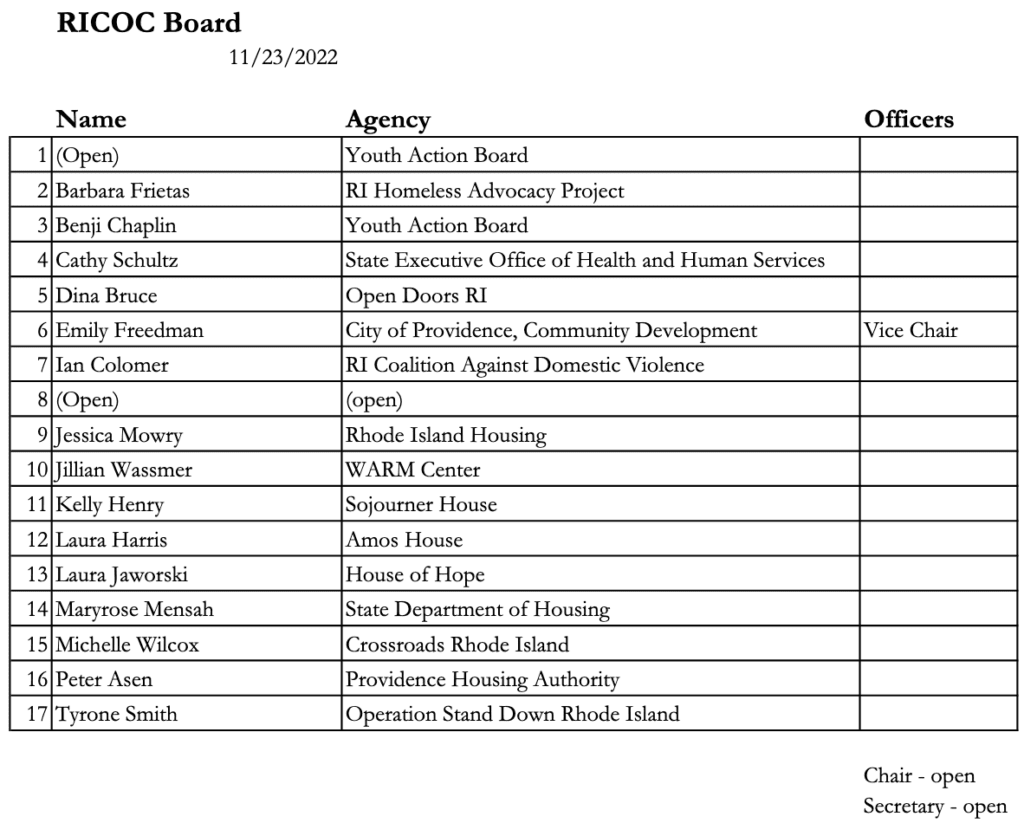Search Posts
Recent Posts
- Outdoors in RI: Help keep recreation areas clean. Invasive Milfoil, trash. 2A update – Jeff Gross July 26, 2024
- Real Estate in RI: Highest-ever sale in Queen’s Grant, EG $1.25M, by Residential Properties July 26, 2024
- Homeless in RI: Gov. Newsom issues Executive Order. Remove California’s encampments. July 26, 2024
- Let the games begin. XXXIII Summer Olympics – John Cardullo July 26, 2024
- GriefSPEAK: What would you do? – Mari Dias Nardolillo July 26, 2024
Categories
Subscribe!
Thanks for subscribing! Please check your email for further instructions.

Homeless in RI: Broken system has more staff, more money – and more homeless
As Christmas approached, the plight of the homeless on the steps of the Rhode Island State House ended with a ray of hope as approximately a dozen left for emergency shelter at the Cranston Street Armory. One woman was known to have been given a hotel room voucher for a week, good until last Friday. Wherever the homeless people from the State House went, after the court hearing that determined they had no “civil right” to stay there, with other demonstration opportunities available to them, the homeless at the State House camp were gone. From sight. But not from the minds of many who work in the field, and the news media.
Out of sight. Out of mind?
Knowing that estimates of those living on the street wavered from 350 to 500 to as many as over 1,000, and with bitter cold weather on the way, immediate inquiries were made by RINewsToday to see what was the plan on a statewide basis.
It was reported that 95 people were at the Armory at one point. Knowing that the Armory was set for 50, and fire department approved for under 100, inquiries were again made to determine what would happen if demand exceeded approved capacity. Several media sources reported the number of attendees as 30, 50, 60 and 95.
We asked a series of questions about what is happening with the homeless in RI, now that the State House issue had somewhat of a solution. Questions were sent to the Governor’s office, the Housing office of Josh Saal, Saal’s communications consultant, Chris Raia of Duffy & Shanley, to the Coalition to End Homelessness, and to Eileen Hayes at Amos House, the group contracted to run the Amory.
No response from any except for Matt Sheaff, the Governor’s communications staff member, who, after several requests, wrote back to clarify what the questions were, but to this date has not responded.
A new Coalition – the Emergency Housing Coalition
Just before Christmas a new group called the Emergency Housing Coalition, and described as “a whole bunch of different groups, including the Rhode Island Poor People’s Campaign and Direct Action for Rights and Equality (DARE) have come together because we are so concerned about the lack of housing in Rhode Island”, held a small demonstration at the downtown side of the Rhode Island State House.
They issued 4 demands to the state of Rhode Island, via a guest article in UpriseRI.com.
- Immediately reopen hotel rooms to provide 400 emergency beds, as this is the only viable short-term means of getting a roof over the heads of those who are currently living outside.
- Guarantee that [the McKee administration] will not evict residents of tent encampments.
- Immediately find sites and begin assembly of rapidly deployable emergency shelters. These can provide viable shelter while permanent supportive housing and deeply subsidized housing units are under construction.
- Accelerate the process of generating 500 new permanent supportive and deeply subsidized housing units for those who will be sheltered in temporary emergency beds.
The Coalition to End Homelessness
In their year-end fundraising letter, the Coalition to End Homelessness wrote that data is important to them as it helps communicate the urgency for more shelter beds and affordable housing. The mailer said that no one should be living outside and “we are not doing the best we can if we cannot offer shelter to every single Rhode Islander who is unhoused”. They note the number of unsheltered is rising, and estimate at the beginning of December that number was approximately 509. “But there are only a handful of beds available each day.
WPRO’s Tara Granahan interviews the Coalition for the Homeless
On December 21st, Tara Granahan interviewed Margaux Morisseau of the RI Coalition for the Homeless.
During that interview Morisseau noted that the Armory can only house 60 “to rest” and discussed the technicalities of how the shelter should be referred to – as a “warming station”, with no explanation as to the different terminologies.
Morisseau said they want $15 Million allocated from the state. Some money has been given out for the Armory and the Community Care Alliance in northern Rhode Island (operating the Smithfield motel shelter). She discussed the NIMBY-ism of Cranston on pallet shelters on the Pastore Complex, and the use of hotels. As they discussed the money it was revealed that the Coalition receives NO money for their services, and they do not pay the field workers, nor do they work for them. Outreach workers are paid by the state and private funds through agencies.
The Coalition is funded from the federal government through the state, to run the HUD-mandated CES and HMIS systems. However, outreach workers are not mandated to use the system to provide geo-locations of the homeless. Requirements to do so could be added but it would need to go through a group called The Continuum of Care. This group, a governing board, before this unknown and unmentioned in any news articles, manages the systems and is composed of representatives of the homeless provider agencies, themselves. RI Housing is the coordinator of the group and all members have “equal footing”.
Hear the interview, below:

Now comes The Continuum of Care
The Continuum of Care is based out of RI Housing. Elizabeth Bioteau is its CoC Planner/Program Manager.
RIHousing’s role in the Rhode Island Continuum of Care (RICoC) is twofold:
- Designated Collaborative Applicant agency for RICoC and responsible for overseeing its annual funding competition, compliance processes and system planning and policy oversight.
- Recipient of over $4 million in CoC funding that we steward throughout the state through subcontracts with 8-10 subrecipient agencies.
We post policies, forms, procedures, information, instructions and updates to RICoC section of our website for sub-recipients, program participants and the general public.

At their November meeting, the minutes note that Laura Jaworski (CEO of House of Hope) commented that their pallet shelter had been stolen but it had been returned. At that meeting there was a presentation of a Crisis Plan that the RI Coalition to End Homelessness and a few other services providers including House of Hope and Crossroads developed to respond to the increased need for shelter. The plan was not included in their minutes.
Budget discussions at the State House
As the Governor’s office has posted they are engrossed in budget discussions, some legislators have also listed homeless services are what they are looking for, particularly in the surplus of funds the state now has.
Rep. Evan Shanley, D-Warwick said he wanted to see funds used to “Build a suitable facility on existing/unused state property to address the homeless crisis.” The state property most often mentioned has been the Pastore Center in Cranston, near Harrington Hall, a shelter housing approximately 150 individuals from 6pm to 7am in a bed bunk, congregate setting.
Rep. David Bennett, D-Warwick also wanted to see “ some of it spent on infrastructure, some of it for low-income housing and the homeless”.
___
To review our series, Homeless in RI, go to Homeless in RI.
___
